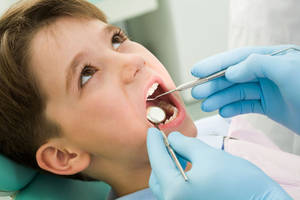Agents that can help us in the fight against tooth decay are rife, and are being added to more and more toothpastes, mouthwash and a whole slew of products all aimed at preserving your chompers. From neem to tea tree oil to sea salt, olive oil and eucalyptus and mint, the host of active ingredients seems to be endless. The newest that I have come across is still in research phase, but is the extract of a bacterium called Bacillus licheniformis that lives on seaweed. The discovery of this bacterium first occurred in Newcastle University’s Marine Biology department, but soon attracted the attention of their Dental school, who have since been working on extracting the active, tooth decay fighting ingredients of this bacterium and using it in products safe for human consumption.

A common thread in tooth decay preventing ingredients
To understand what these seemingly completely different and very weird compounds (like neem, cocoa extract, peppermint and bacterial gunk) have in common, we must first understand the germs that cause tooth decay. When under attack, bacteria like streptococcus mutans, which is one of the many microbes responsible for tooth decay, tend to form a biofilm out of external DNA. This film holds them together and creates a layer for them to live in, and then later on hardens into plaque and then tartar. Biofilm sticks to everything and is thus quite effective at keeping the bacteria stuck to your tooth surfaces. All of the different ingredients in toothpaste seek to break this biofilm up, and thus effectively break up the colonies of bacteria and make them isolated and easier to remove and brush away preventing tooth decay.
The enzyme that prevent tooth decay
The enzyme that has been extracted from this licheniformis bacterium is remarkably effective at breaking up biofilm, and at killing bacteria. Not only does it break up biofilm, it also can cut through plaque and dissolve it, effectively making the bacteria unable to stick to surfaces, so they can be easily spit out.
While brushing and flossing and using mouthwash is absolutely essential in oral health, it is simply not enough to prevent tooth decay. You will need to visit a dentist every six months to see that nothing is going amiss, and that everything is working properly. These visits also allow the dentist to patch up any initial tooth decay, and to physically remove bacterial colonies from hard to reach places and tooth gaps. They are an essential part of oral health care.
Click for your free consultation
Special dental offer for those who decide to travel and would like to stay in Budapest!
The offer is valid until 31st of December, 2019.





